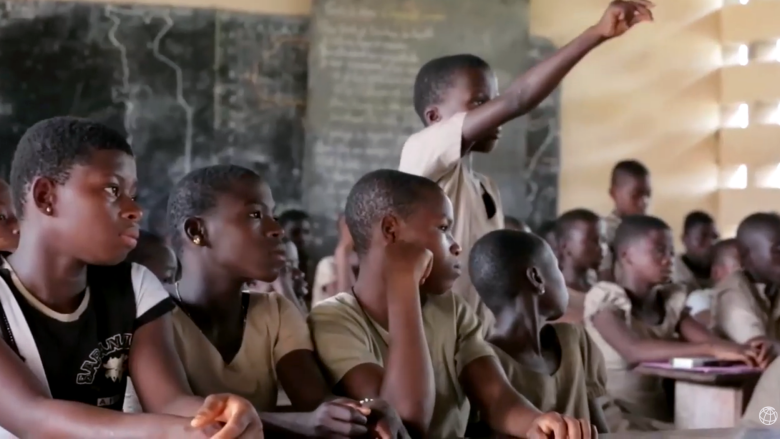Challenge
Mobilizing tax revenue is key if developing countries are to finance the investments in human capital, health and infrastructure necessary to achieve the World Bank Group’s goals of ending extreme poverty and boosting shared prosperity by 2030. To achieve the Sustainable Development Goals, low-income countries face an estimated annual financing gap of half a trillion dollars, 0.5 percent of global Gross Domestic Product (GDP). The International Monetary Fund (IMF) estimates that extra tax revenues could finance one-third of this gap.
Sub-Saharan Africa remains the region with the largest number of economies below the minimum desirable tax-to-GDP ratio of 15%. At that level, revenues are inadequate to finance basic state functions. Non-oil-rich countries in the region saw their tax-to-GDP ratios increase to 16% in 2018 from 15.3% in 2010. Due to fluctuating oil prices, tax collections are more volatile in oil-rich states. In these countries, tax revenues increased from 9.2% of GDP in 2010 to 15.2% in 2015, after which taxes fell back to 10.2% in 2018.
Relatively low tax collections in the region reflect weaknesses in revenue management, including widespread tax exemptions, corruption, and shortfalls in the capacity of tax and customs administrations. Given the region’s relatively large agricultural sectors and less open economies, the capacity to raise tax revenues is also lower. The maximum tax revenue potential for countries in the region is estimated to average 19.6% of GDP, which is 7.5 points lower than in the rest of the world.
Approach
Most African economies have the potential to mobilize more in taxes. This can be done through better tax administration (including value-added taxes), broadening the tax base by removing cost-ineffective tax expenditures, and increasing excise taxes (including on alcohol, tobacco, and soft drinks). In addition, it’s important to introduce efficient carbon-pricing policies and effective property taxation while and closing international tax loopholes that permit aggressive tax avoidance and evasion by multinationals and wealthy individuals. Reducing structural bottlenecks is also part of suite of tools to consider in improving revenue outcomes, including by improving taxpayers’ trust and by moving tax administrations to the digital frontier.
Results
Sierra Leone: Moving Customs and Tax Administration to the Digital Frontier. The World Bank Group is supporting the country’s effort to modernize revenue administration through automation of the Customs and Domestic Taxes Departments. Automated System for Customs Data (ASYCUDA World) was commissioned in January 2019. As a result, revenue collections doubled in the first quarter of 2019 over the same quarter in 2018.
Democratic Republic of Congo: Support to the Provincial Tax Administration Helps Mobilize Funds for Social Services. Through the Public Financial Management and Accountability Project, the Bank provided support to the province of Nord-Kivu to establish a taxpayer register, undertake an awareness campaign, and improve the mobility of tax officers (through motorbikes). These activities helped increase the province’s revenues by over 70 percent between 2014 and 2017, allowing it to fund from its own budget investments in basic physical and social infrastructure such as roads, health, and education.
Uganda: Developing a Medium-Term Revenue Strategy. In 2016, even after two decades of sound macroeconomic performance, Uganda’s tax-to-GDP ratio was a meager 13 percent—the lowest in the East African Community and below the government’s own goal of 16 percent. A Domestic Resource Mobilization (DRM) Committee was established, including the Ministry of Finance, Planning and Economic Development, the Uganda Revenue Authority, and development partners to guide the development of the DRM strategy and coordinate interventions to support revenue mobilization. The World Bank Group supported the development of this strategy with an assessment of Uganda’s domestic revenue gaps, an excise duty diagnostic, and undertook a range of assessments on DRM institutional needs, customs and Information and Communication Technology (ICT). Uganda’s draft DRM Strategy aims to increase the tax-to-GDP ratio by 0.5 percentage point of GDP per year while enhancing fairness, transparency, and accountability in the tax system and lifting the capacities of the revenue administration entities. A transformational agenda was proposed to help URA address performance gaps, build on its areas of strengths, and work toward implementing MTRS processes. The multi-year agenda is composed of six sub-agendas, including: 1) tax policy; 2) institutional framework; 3) human resources; 4) core function operations; 5) new technologies; and 6) non-technical drivers of DRM.
Tackling Aggressive International Tax Planning and Evasion. World Bank Group technical assistance (now under the Global Tax Program) has allowed to introduce strengthened anti-abuse rules in several countries, including Senegal, Nigeria, Liberia, Cape Verde, Mauritania, and Kenya. Revenue collections from audits have been substantial. In Kenya, tax officials who received training successfully negotiated transfer-pricing audit adjustments that brought in additional tax revenue of $135 million in 2016. In the Economic Community of West African States (ECOWAS) region, additional assessments from international tax audits exceeded $100 million in pilot countries in a single year (2017).
Somalia: Sustained Support Helps Increase Revenue Collection in a Fragile State. Since 2015, the World Bank Group has provided support on tax policy and administration as well as taxpayer education to improve voluntary taxpayer compliance. During this period, revenue collection more than doubled, from $76 million in 2013 to $183 million in 2018, exceeding the target under the IMF Staff Monitored Program.


